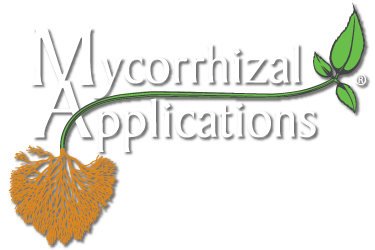Sustainability is not just a buzzword. It is not just another feel-good term. Sustainability is a commitment to meet our environmental, social, and economic needs without compromising the next generations’ ability to thrive in the future. We truly believe this at Mycorrhizal Applications – and it shows in our practices, products, and employees.
But we are getting ahead of ourselves. Who is Mycorrhizal Applications?
About Us
Mycorrhizal Applications is a company founded on sustainability. We are the world’s leading supplier of mycorrhizal soil inoculant products, as well as the master distributor of a suite of biological and botanical plant support products for the horticulture industry.
Our company mission is to harness the power and wisdom of natural systems to promote living soils and increase quality, productivity, and health in all industries involving soils, plants, and people. It’s a big mission, and we are always finding new ways to take one step closer.
Starting the Journey with Mycorrhizae
In our opinion, mycorrhizal fungi are one of the key pillars of a sustainable operation. These fascinating microbes form a symbiotic relationship with plant roots. They then seek out water, nutrients, and other resources that would otherwise be unavailable or difficult for the plant to access in exchange for sugars.
For decades, these wild fungi have been harnessed through Mycorrhizal Applications’ MycoApply® product line to help growers run more sustainable operations while simultaneously boosting production, utilizing fewer inputs, and growing more stress-resistant plants.











